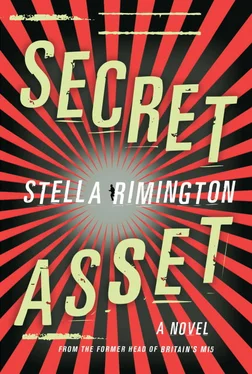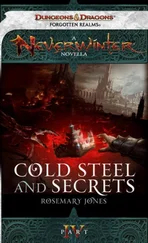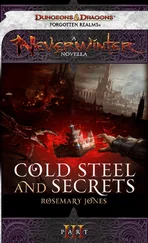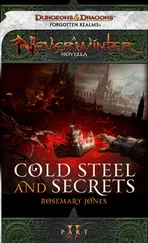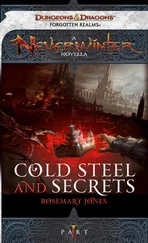Yet both being realists, the avoidance strategy couldn’t last. As they swept down into the large bowl at High Wycombe, Wetherby sighed, cutting short his account of a particularly happy holiday spent sailing around The Needles. “How did you know Tom would be there?” he asked.
“I can’t say I knew,” said Liz. “It was just a hunch.”
Wetherby gave a small snort. “I have to say your hunches are better than most of the rational analysis I receive.”
It was a compliment, but Liz couldn’t help feeling that luck had played as large a role as prescience. And what if Tom hadn’t slipped? She felt in her bones that he would have got away.
Wetherby seemed to read her thoughts. “Where do you think Tom was going to go?”
Liz gazed at a golf course carved out of the side of a hill, and thought about this. Presumably Tom would have left the country, and gone on the run abroad. But where? It was not as if Tom had had some cause or place to defect to—he wouldn’t have gone unnoticed for forty-eight hours in Northern Ireland and, in any case, the IRA wouldn’t want him anywhere near their newly peaceful selves.
“Tom spoke fluent Arabic,” she said at last, “so conceivably he would have tried to slip into one of the Middle Eastern countries, and carve out some sort of new career for himself with a new identity.”
“He’d have run the risk of being spotted. It’s a small world—Westerners in the Arab world.”
“Perhaps he’d have gone to New York,” said Liz. “You know, following his father’s footsteps. I think there was certainly more he wanted to do.”
“More of the same?” asked Wetherby mildly.
“Who knows? But revenge on some other institution, I think. The newspaper who fired his father. MI6, I would imagine. Then he’d probably have had another go at us.”
“He’d have had to keep moving, whatever new identity he tried to assume.”
“That’s true,” said Liz. “But maybe that would have suited him.”
They were nearing the junction with the M25, and the road signs listed Heathrow, which somehow seemed appropriate for this talk of Tom’s plans. “But why did he run in the first place?” she asked rhetorically. “I mean, if he had stayed put, what exactly would have happened to him? Or more precisely, what would we have been able to pin on him? O’Phelan’s death wasn’t solved—no witness, no fingerprints, no trace of Tom in Belfast. The same with Marzipan. The forensic investigation found absolutely nothing to point towards his killer.”
Wetherby smiled wistfully. “I see your reasoning, but I think you are missing the point. Tom fled because Tom wanted us to know.”
“But why? What difference would that make?”
“To Tom,” said Wetherby patiently, “all the difference in the world. For Tom, the point was to humiliate us. He wanted us to be in his control. He wanted us to feel powerless and small. Helpless actually.”
“Like his father must have felt,” murmured Liz.
“I suppose,” said Wetherby. “But my point is, Tom’s motives weren’t political. If they had been, the detonators would have worked.”
“And he wouldn’t have made the phone call.”
“Quite. He didn’t want to kill dozens of people. He just wanted us to know he could have. And he would have wanted to show us that again and again, each time probably killing one or two people who got in his way—like Marzipan. The irony is, he probably would have ended up killing as many people as he would have today with a bomb.” Wetherby shook his head in dismayed wonder.
“So was he simply mad?” asked Liz.
“We’ll never know now,” said Wetherby. “What we do know is that he wasn’t who we thought he was.”
The meeting was ending, but the long grim process had only just begun.
The press coverage of the aborted bomb attempt in Oxford had been sensational. TEN SECONDS FROM DEATH announced the Daily Mail, with a split front page showing the crashed van on one side and a picture of the new Chancellor on the other, looking shocked in his academic gown. IT’S A DUD! proclaimed the Sun, which managed to get a picture of Rashid Khan, his head shrouded in a blanket, being led out to a prison van at the St. Aldates police station. The Express featured a photograph of the Chancellor’s procession, beadles, stewards, vespers and all, which Liz realised had to have been taken years before—it showed the trail of dignitaries on the Broad, which they had never reached, and had at its head the old Chancellor rather than his new successor. The broadsheets were more circumspect. The Times account—BOMBERS’ PLOT FOILED IN OXFORD—was followed by its other upmarket colleagues in emphasising the fact that the conspiracy had been detected rather than how close it had come to success. The Guardian had much the same coverage together with an article by an architect on the damage to the historic railings in the Broad.
All of course mentioned the deaths of the van driver and his passenger, and also the death of a Security Service officer—though readers eager to learn more about that fatality would not find their curiosity assuaged. A D notice had landed within hours on the desk of every newspaper editor in the UK, so other than reporting the fact of Tom’s death, described invariably as a “tragic accident,” nothing else appeared about him.
However events were described, the facts were undeniable: two terrorists had been within a whisker of blowing up a symbol of one of Britain’s oldest institutions along with a host of dignitaries. If some of the newspapers credited the security services with foiling the plot, others directly criticised them for letting it get so close to fruition. None suggested it had been anything but a very narrow squeak.
Fortunately for Liz and her colleagues, the media’s shrill attention proved short-lived—displaced by a particularly horrific attack in Baghdad and by another spat between the Prime Minister and the Chancellor of the Exchequer. Coverage of the Oxford Plot (as it was already coming to be known) moved after two days to the inside pages and the occasional comment column, and though the debacle would be cited endlessly in future as an example of the formidable threats the country was now facing, its news value was reduced with each day’s passing.
Within MI5 and MI6, however, the impact of the Oxford Plot was anything but temporary. Analysis of what happened and why was just beginning. This initial meeting was going to be the first of many. Already the various sections were starting their own damage assessments, and would be meeting regularly to share them.
As people gathered their papers and started to leave the room, Dave Armstrong caught Liz’s eye. “Got time for a coffee?” he asked.
“Maybe later,” she said, for something was making her feel she wanted to stay behind.
As the room emptied she found herself alone at the table with Wetherby, who was looking tired and subdued even by his undemonstrative standards. He managed a rueful smile at Liz. “I’ve chaired happier meetings in my time.”
“At least everyone knows what they’ve got to do.”
“Yes. It’s obviously important to track right back through all this. Everything. Right back to Tom’s recruitment,” said Wetherby, lifting a hand in acknowledgement of the detail they had all just waded through. “We need to understand why we didn’t pick up that there was something wrong about him. Why we didn’t notice anything. There’ll be an inquiry,” he said, with a tone of resignation. “Not a public inquiry, I don’t think, though there’ll be pressure for one, but a big internal one. The Home Secretary’s talking about getting a judge to conduct it. He actually had the nerve to say ‘ Quis custodiet ipsos custodes ?’ You’d think he’d have thought of something more original.” Wetherby shook his head in disbelief. Liz had forgotten the little Latin she had learned at school but she knew that phrase very well: “Who is to watch over the guardians themselves?” “I have to say DG was very good in the meeting,” Wetherby added.
Читать дальше
